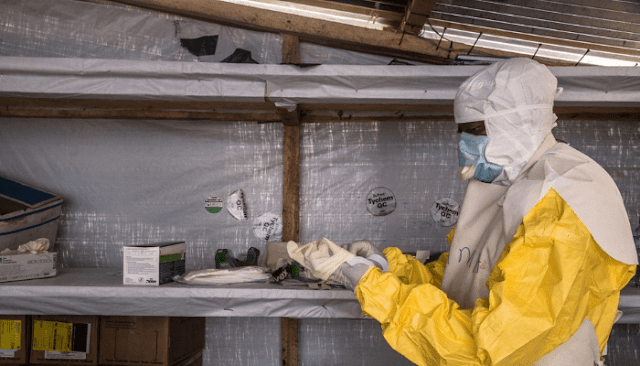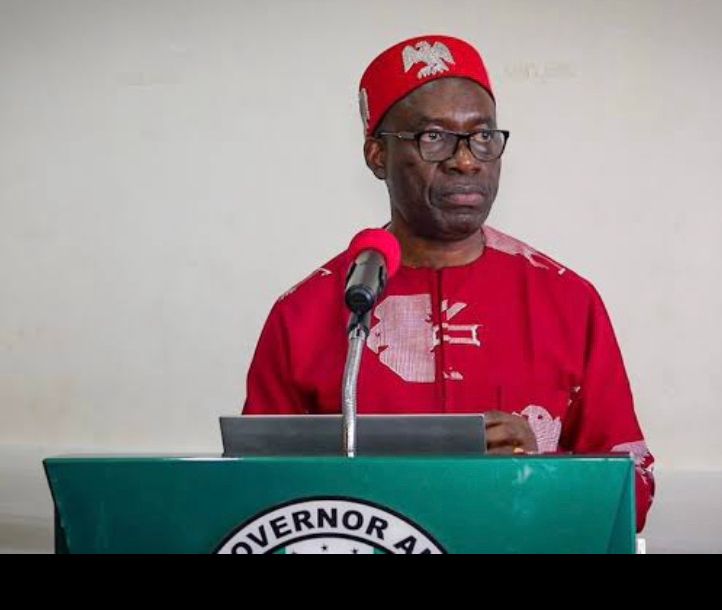In a groundbreaking move aimed at addressing Nigeria’s persistent healthcare funding challenges, the Federal Government has announced plans to channel revenues generated from lifestyle taxes into the nation’s healthcare sector. This initiative, revealed by Taiwo Oyedele, Chairman of the Presidential Committee on Fiscal Policy and Tax Reforms, signals a strategic shift in how the government intends to finance critical public services while promoting healthier lifestyles among Nigerians. The announcement, made during a recent public engagement, underscores the government’s commitment to improving healthcare access and quality, a sector that has long been plagued by underfunding, infrastructure deficits, and systemic inefficiencies.
Background: Nigeria’s Healthcare Funding Crisis
Nigeria’s healthcare system has faced significant challenges for decades, with inadequate funding being a primary obstacle. Despite the country’s growing population, which exceeds 200 million, public healthcare expenditure remains abysmally low. According to the World Health Organization (WHO), Nigeria’s per capita health spending is among the lowest globally, with the government allocating less than 5% of its annual budget to healthcare in recent years. This falls far short of the 15% recommended by the African Union’s Abuja Declaration of 2001, which urged African governments to prioritize health financing.
The consequences of this underfunding are evident in the state of Nigeria’s healthcare infrastructure. Many public hospitals lack essential medical equipment, skilled personnel, and adequate supplies of drugs and vaccines. Rural areas, in particular, suffer from a severe shortage of healthcare facilities, forcing residents to travel long distances for basic medical care. Additionally, out-of-pocket healthcare expenses account for over 70% of total health spending in Nigeria, placing a significant financial burden on households and exacerbating poverty.
Against this backdrop, the Federal Government’s decision to explore innovative funding mechanisms, such as redirecting lifestyle taxes, represents a bold attempt to address these systemic issues. By leveraging revenues from taxes on goods and services associated with unhealthy lifestyles, the government aims to create a sustainable funding stream for healthcare while simultaneously encouraging behavioral changes among citizens.
What Are Lifestyle Taxes?
Lifestyle taxes, often referred to as “sin taxes,” are levies imposed on goods and services that are deemed harmful to public health or societal well-being. These typically include products such as tobacco, alcohol, sugary beverages, and other consumables linked to non-communicable diseases (NCDs) like diabetes, hypertension, and cancer. The rationale behind such taxes is twofold: to discourage excessive consumption of these products and to generate revenue that can be reinvested into public welfare programs, such as healthcare.
In Nigeria, lifestyle taxes have been implemented in various forms over the years. For instance, the government introduced a ₦10 per liter tax on sugar-sweetened beverages (SSBs) in 2021 as part of efforts to curb the rising prevalence of obesity and related diseases. Similarly, excise duties on tobacco and alcohol products have been periodically adjusted to reflect inflationary trends and public health objectives. However, the revenues from these taxes have often been absorbed into the general budget, with little transparency regarding their allocation to specific sectors like healthcare.
Taiwo Oyedele’s announcement marks a significant departure from this practice. By earmarking lifestyle tax revenues specifically for healthcare, the government aims to ensure that funds are directed toward addressing pressing health challenges, such as improving primary healthcare services, upgrading medical facilities, and expanding access to essential medicines.
Oyedele’s Vision: A Dual-Purpose Policy
During a recent public address, Taiwo Oyedele elaborated on the rationale behind the government’s decision to channel lifestyle taxes into healthcare funding. He emphasized that the policy serves a dual purpose: raising much-needed revenue for the healthcare sector and promoting healthier lifestyles among Nigerians. “By taxing products that contribute to poor health outcomes, we are not only discouraging their consumption but also creating a funding mechanism to address the very health issues they cause,” Oyedele stated.
This approach aligns with global best practices, as many countries have successfully used sin taxes to finance public health initiatives. For example, in the Philippines, revenues from tobacco and alcohol taxes have been instrumental in expanding universal health coverage, while in Mexico, taxes on sugary drinks have funded anti-obesity programs. Nigeria’s adoption of a similar model could help bridge the funding gap in its healthcare system while addressing the growing burden of NCDs, which account for an estimated 30% of deaths in the country, according to the WHO.
Oyedele also highlighted the importance of transparency and accountability in the implementation of this policy. He assured Nigerians that mechanisms would be put in place to ensure that lifestyle tax revenues are ring-fenced and used exclusively for healthcare purposes. This commitment is particularly significant in a country where public trust in government institutions has been eroded by allegations of mismanagement and corruption.
The Potential Impact on Healthcare
The decision to redirect lifestyle taxes to healthcare funding has the potential to transform Nigeria’s health sector if implemented effectively. The additional revenue could be used to address several critical areas, including:
Strengthening Primary Healthcare: Primary healthcare centers (PHCs) are the backbone of Nigeria’s health system, serving as the first point of contact for millions of citizens, particularly in rural areas. However, many PHCs are understaffed, poorly equipped, and unable to provide basic services. Funds from lifestyle taxes could be used to renovate existing facilities, procure essential medical equipment, and train healthcare workers.
Expanding Access to Essential Medicines: Nigeria faces a persistent challenge in ensuring the availability of affordable medicines, particularly for chronic conditions like diabetes and hypertension. By allocating lifestyle tax revenues to subsidize essential drugs, the government could reduce out-of-pocket expenses and improve treatment outcomes.
Combating Non-Communicable Diseases: The rise of NCDs is a growing public health concern in Nigeria, driven partly by changing dietary habits and increased consumption of processed foods and sugary drinks. Lifestyle tax revenues could be used to fund public health campaigns aimed at raising awareness about the risks of NCDs and promoting healthier lifestyles.
Improving Maternal and Child Health: Nigeria has one of the highest maternal and child mortality rates in the world, with many deaths attributable to preventable causes. Investments in maternal and child health programs, such as antenatal care and immunization campaigns, could be significantly enhanced with additional funding.
Upgrading Tertiary Healthcare Facilities: While primary healthcare is critical, tertiary hospitals also require significant investment to handle complex medical cases. Funds from lifestyle taxes could be used to equip these facilities with state-of-the-art technology and attract skilled specialists.
Challenges and Considerations
While the policy holds immense promise, its success will depend on several factors, including effective implementation, public acceptance, and robust monitoring mechanisms. Below are some of the challenges the government may face and considerations for overcoming them:
Public Resistance to Taxation: Nigerians have historically been skeptical of new taxes, particularly in the absence of tangible improvements in public services. The introduction or expansion of lifestyle taxes could face pushback from consumers and industries, especially if they perceive the taxes as punitive. To mitigate this, the government must engage in extensive public sensitization campaigns to explain the benefits of the policy and how the revenues will be used to improve healthcare.
Enforcement and Compliance: Tax evasion and smuggling are significant issues in Nigeria, particularly in the tobacco and alcohol sectors. Ensuring compliance with lifestyle taxes will require strengthening the capacity of regulatory agencies, such as the Nigeria Customs Service and the Federal Inland Revenue Service, to monitor and enforce tax collection.
Transparency and Accountability: Past experiences with government initiatives have left many Nigerians wary of how public funds are managed. To build trust, the government must establish a transparent framework for tracking and reporting the use of lifestyle tax revenues. An independent oversight body could be created to ensure that funds are allocated as promised.
Balancing Economic Impacts: Lifestyle taxes, while beneficial for public health, can have economic implications, particularly for industries that produce or distribute taxed goods. For example, higher taxes on sugary drinks could affect beverage manufacturers and small-scale retailers. The government must carefully calibrate tax rates to avoid unintended economic consequences while achieving its public health objectives.
Addressing Inequality: Lifestyle taxes are often regressive, meaning they disproportionately affect lower-income individuals who spend a larger share of their income on taxed goods. To address this, the government could consider complementary measures, such as subsidies for healthy food options or targeted healthcare programs for low-income communities.
Broader Implications for Fiscal Policy
The decision to channel lifestyle taxes into healthcare funding is part of a broader effort by the Presidential Committee on Fiscal Policy and Tax Reforms to overhaul Nigeria’s tax system. Led by Taiwo Oyedele, the committee has been tasked with simplifying tax administration, improving revenue collection, and ensuring that fiscal policies align with national development goals. The lifestyle tax initiative reflects a growing recognition that taxation can serve as a tool for social good, beyond its traditional role of revenue generation.
By linking tax policy to public health outcomes, the government is adopting a more holistic approach to fiscal management. This could pave the way for similar initiatives in other sectors, such as education or infrastructure, where targeted funding mechanisms could address long-standing challenges. Moreover, the policy aligns with Nigeria’s commitments under the Sustainable Development Goals (SDGs), particularly Goal 3, which focuses on ensuring healthy lives and promoting well-being for all.
Public and Stakeholder Reactions
The announcement has elicited a range of reactions from stakeholders, including healthcare professionals, industry players, and the general public. Health advocacy groups have largely welcomed the move, describing it as a step in the right direction. Dr. Chidi Okonkwo, a public health expert, noted that “redirecting lifestyle tax revenues to healthcare is a win-win strategy. It not only provides much-needed funding but also incentivizes healthier choices, which could reduce the burden on our healthcare system in the long run.”
However, some industry groups have expressed concerns about the potential impact of higher taxes on their operations. The Beverage Manufacturers Association of Nigeria, for instance, has called for dialogue with the government to ensure that tax policies do not undermine the competitiveness of local businesses. “While we support efforts to improve public health, any new taxes must be carefully designed to avoid job losses or price increases that could hurt consumers,” a spokesperson for the association said.
Among the general public, opinions are mixed. Some Nigerians have expressed support for the policy, citing the urgent need to improve healthcare services. Others, however, remain skeptical, with many calling for guarantees that the funds will not be mismanaged. “We’ve heard promises like this before,” said Aisha Ibrahim, a Lagos-based trader. “The government needs to show us that the money will actually reach the hospitals and not end up in someone’s pocket.”
Looking Ahead: A Path to Sustainable Healthcare Financing
As Nigeria grapples with the dual challenges of healthcare underfunding and rising public health concerns, the decision to channel lifestyle taxes into healthcare funding offers a glimmer of hope. If implemented effectively, this policy could mark a turning point in the country’s efforts to build a more resilient and equitable healthcare system. However, its success will hinge on the government’s ability to address implementation challenges, engage stakeholders, and maintain public trust.
Moving forward, the Federal Government must prioritize stakeholder consultations to refine the policy and address concerns from all quarters. Public awareness campaigns will be crucial to garner support and ensure that Nigerians understand the link between lifestyle taxes and improved healthcare outcomes. Additionally, the government should explore complementary measures, such as public-private partnerships, to maximize the impact of the additional funding.
In conclusion, the initiative to redirect lifestyle taxes to healthcare funding represents a bold and innovative step toward addressing Nigeria’s healthcare challenges. By leveraging fiscal policy to promote public health, the government has an opportunity to not only improve healthcare access but also set a precedent for evidence-based policymaking. As Taiwo Oyedele and his team continue to drive fiscal reforms, Nigerians will be watching closely to see whether this policy delivers on its promise of a healthier, more prosperous nation.






